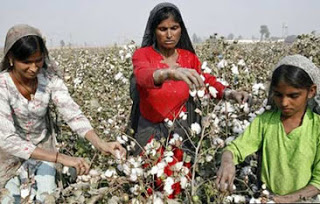
The biggest challenge facing Pakistan right now is the economic crisis and the PMLN led coalition government needs to quickly find a way forward on this front. One third of the population lives on around $3 a day and has been hit by double-digit inflation which is the third-highest among the major economies of the world. Pakistan’s central bank foreign exchange cash reserves have fallen to $6.5 billion or by nearly 50 %since the end of February, just enough to cover a few weeks of imports. Pakistan’s currency continues to fall.
According to political economist, S. Akbar Zaidi, “weeks after taking office, the coalition government has no plan, perhaps not even a clue, at a time when the global economy is being hit hard by war, supply chain disruptions, and an impending economic crisis, leading to rising inflation, currencies and interest rates, globally. The government needs a clear plan, beyond blaming the previous government, of what it hopes to achieve. It was always aware of how bad the economy was, and this was one of its main rallying cries. If it does not have the courage to set things straight, it should not have embarked on its present adventure.”
As Zaidi notes, “the IMF, with its stringent conditions, continues to be this government’s only hope, dominating and determining economic policy. Yet, the conditions required to get a tiny loan from the IMF on expectations that other donors will follow, will add to a huge inflationary spiral to the already persistent 13 per cent-plus inflation rate. A weaker rupee, growing imports, expanding and unmanageable current account and fiscal deficits, all create a perfect storm on which IMF conditions to remove petroleum subsidies will add much fuel to an already incendiary situation.”
Further, as Zaidi points out, “this government’s biggest problem and Achilles heel is that it does not know how long it will be in power, and the uncertainty in its tenure will undermine all initiatives. After an election, no matter how fragile the economy, every incoming government expects that it has some years ahead and has opportunities to either wait and see or experiment with possible solutions. This government has no such cushion or luxury.”
In a recent column Yusuf Nazar, former head of Citigroup’s emerging markets investments, put forth five steps that needed to be taken to address Pakistan’s short and long term crises:
- “Increase gasoline prices by Rs30 to Rs50 per liter. Remove tax exemptions/subsidies (for Rs800 billion) for the corporate sector immediately and get $10bn from the IMF. Both the conditions (in principle if not their magnitude suggested by me) are part of the IMF program and were part of the commitments made by the PTI government to the IMF. We must cut energy consumption and higher prices are essential to achieve this objective. Voluntary energy conservation schemes are not usually very effective.
- Impose a financial emergency under Article 235(1) of the constitution and ask the provinces to collect at least Rs100bn through higher taxes on land, property, and agricultural income. It is a shame that all of Punjab with its 100 million-plus population, collects less urban property taxes than the city of Chennai in India, which is home to about 10 million people.
- Impose a special emergency tax of Rs.500,000 on vehicles of 1600cc or more. This can bring in at least Rs20bn. Double the electricity tariff on residential properties of 800 sq yards or more.
- Cut non-combat defense spending by Rs.100bn out of the total defense budget of more than Rs1.3 trillion. Downsize the federal govt and abolish/downsize all those divisions that handle subjects that have been transferred to the provincial governments. This can bring in an additional Rs30bn.
- Ban all land allotments and make it mandatory to sell the state land by public auction only and launch a privatization program to create an investment-friendly environment.”
In conclusion Nazar notes, “A rent-seeking economy driven by tax exemptions and concessions is not competitive internationally and is the primary reason for the country’s recurring balance of payments crises.”
![]()





